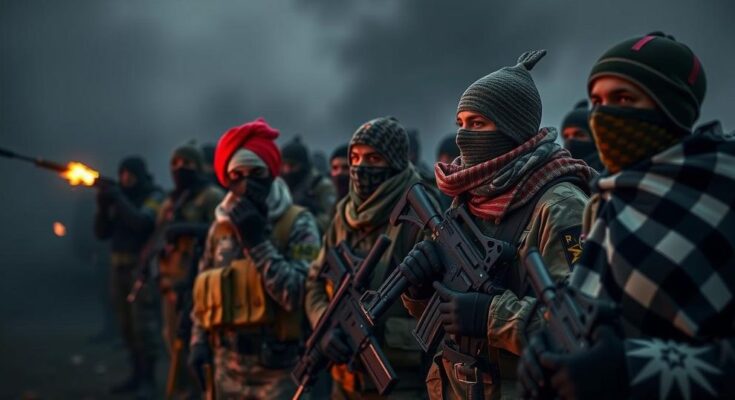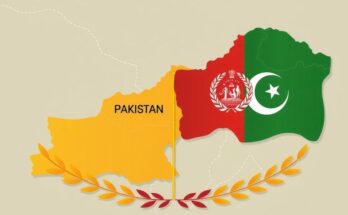An Iraqi militia aligned with Iran has pledged support to Syria’s Assad as insurgent attacks capture crucial territory, marking a notable escalation in the civil war. The developments coincide with ongoing regional tensions, particularly involving Israel, and indicate complex geopolitical dynamics at play.
The conflict in Syria has intensified as the Nujaba Movement, an Iraqi militia aligned with Iran, has pledged support for Syrian President Bashar al-Assad amidst a significant insurgent offensive. This offensive, spearheaded by the Islamist faction Hayat Tahrir al-Sham and supported by other opposition groups, has led to rebels rapidly advancing into Aleppo and threatening the critical city of Hama. This surge in violence occurs simultaneously with regional tensions, particularly between Israel and the Iran-led coalition, following the recent Hamas attacks.
As hostilities escalate in Syria, the Nujaba Movement has expressed its readiness to assist Assad’s government, criticizing the offensive as an act orchestrated to undermine the Iran-aligned coalition. Nujaba spokesperson Hussein al-Musawi claimed that the insurgents are acting according to U.S. and Israeli interests to create instability in the region. He assured that Iraqi militias will counter any threats to regional security posed by these armed groups.
The backdrop of this conflict includes ongoing diplomatic efforts from Iran, Russia, and Turkey amid the chaos. Meanwhile, U.S. involvement remains understated, with the State Department silent on the rebel advances that coincide with the Thanksgiving holiday. The U.S.-backed Syrian Democratic Forces (SDF), which govern a substantial portion of northern and eastern Syria, have also indicated a potential intervention, alleging Turkish orchestration of the insurgent attack. They maintain that the defense of their region and people remains a priority in the face of evolving circumstances.
Overall, the developments signify a potential escalation in Syria’s already complex civil war, further complicating diplomatic resolutions and regional stability in a landscape affected by both internal strife and external geopolitical maneuvers.
The ongoing civil war in Syria has triggered a multifaceted crisis, drawing in various regional and international actors, each with their vested interests. The conflict began in 2011, leading to widespread devastation and displacement. The Iranian-aligned Axis of Resistance, which includes Iraqi militias such as the Nujaba Movement, is committed to supporting Assad’s regime against insurgents. Amid this backdrop, other factions, including those backed by Turkey and the United States, continue to vie for territorial control and influence, contributing to the chaotic dynamics of the region.
The recent developments in Syria signify a marked escalation as an Iraqi militia aligned with Iran vows to back Assad against a formidable rebel movement. As rebel forces capture key territories and U.S. and Turkish involvement remains contentious, the conflict complicates already intricate regional relations. The Nujaba Movement’s readiness to intervene underscores the potential for a prolonged and intensified struggle amid the geopolitics surrounding the Syrian crisis.
Original Source: www.newsweek.com




